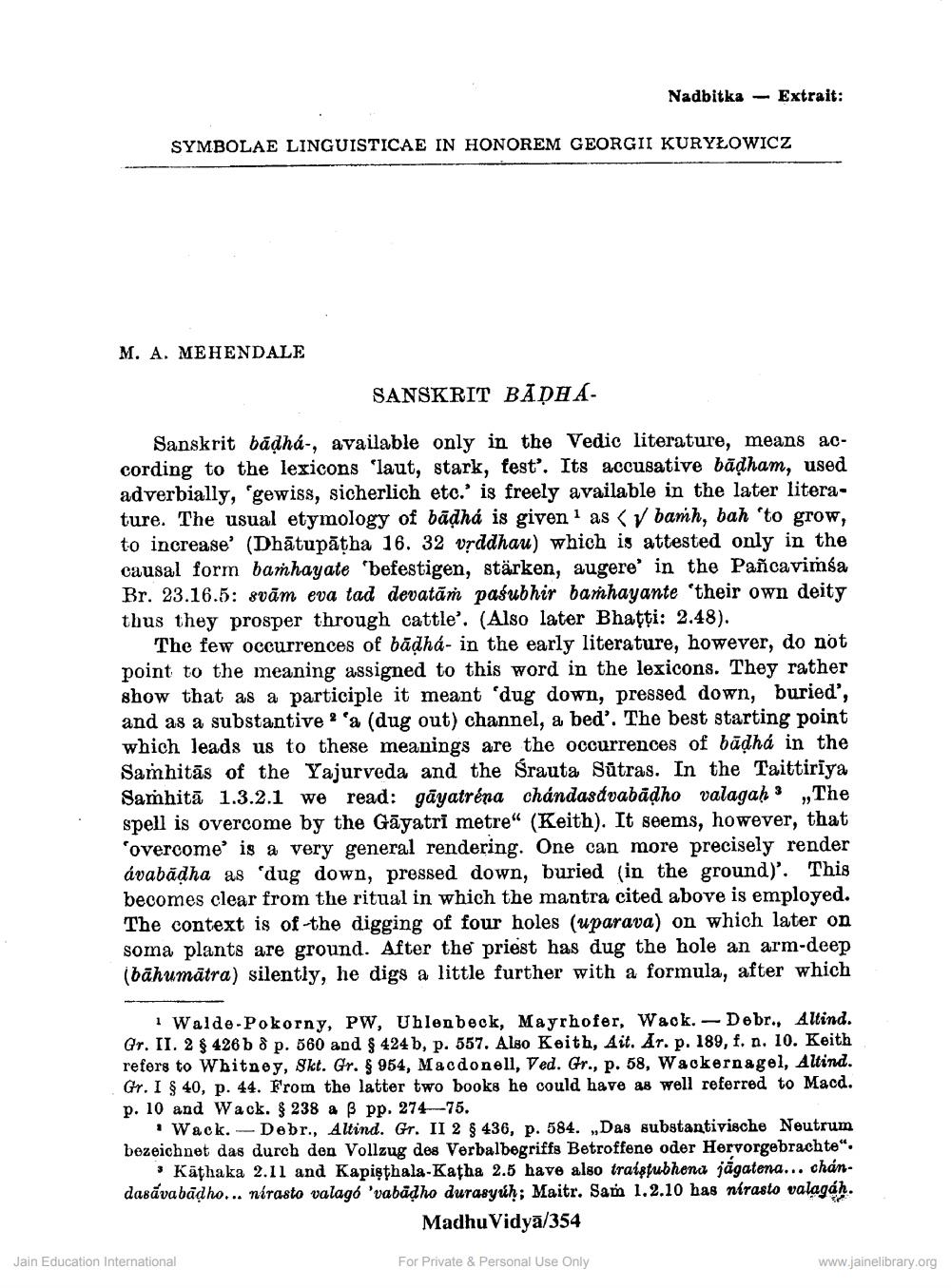________________
SYMBOLAE LINGUISTICAE IN HONOREM GEORGII KURYŁOWICZ
M. A. MEHENDALE
Nadbitka Extrait:
SANSKRIT BADHA
Sanskrit bádhá-, available only in the Vedic literature, means according to the lexicons "laut, stark, fest. Its accusative bädham, used adverbially, 'gewiss, sicherlich etc. is freely available in the later literature. The usual etymology of badhd is given as <bamh, bah 'to grow, to increase' (Dhatupatha 16. 32 vṛddhau) which is attested only in the causal form bamhayate 'befestigen, stärken, augere in the Pañcavima Br. 23.16.5: svām eva tad devatam pasubhir bamhayante 'their own deity thus they prosper through cattle'. (Also later Bhatti: 2.48).
The few occurrences of badhá- in the early literature, however, do not point to the meaning assigned to this word in the lexicons. They rather show that as a participle it meant 'dug down, pressed down, buried', and as a substantive 'a (dug out) channel, a bed'. The best starting point which leads us to these meanings are the occurrences of badhá in the Samhitas of the Yajurveda and the Srauta Satras. In the Taittiriya Samhita 1.3.2.1 we read: gayatréna chándasávabāḍho valagaḥ,,The spell is overcome by the Gayatri metre" (Keith). It seems, however, that 'overcome is a very general rendering. One can more precisely render ávabadha as 'dug down, pressed down, buried (in the ground). This becomes clear from the ritual in which the mantra cited above is employed. The context is of the digging of four holes (uparava) on which later on soma plants are ground. After the priest has dug the hole an arm-deep (bahumätra) silently, he digs a little further with a formula, after which
Walde-Pokorny, PW, Uhlenbeck, Mayrhofer, Wack.-Debr., Altind. Gr. II. 2 § 426 b 8 p. 560 and § 424 b, p. 557. Also Keith, Ait. Ar. p. 189, f. n. 10. Keith refers to Whitney, Skt. Gr. § 954, Macdonell, Ved. Gr., p. 58, Wackernagel, Altind. Gr. I § 40, p. 44. From the latter two books he could have as well referred to Macd. p. 10 and Wack. § 238 a ẞ pp. 274-75.
Wack. Debr., Altind. Gr. II 2 § 436, p. 584. Das substantivische Neutrum bezeichnet das durch den Vollzug des Verbalbegriffs Betroffene oder Hervorgebrachte".
Kathaka 2.11 and Kapisthala-Katha 2.5 have also traistubhena jagatena... chán. dasávabāko... nirasto valagó 'vabāḍho durasyuh; Maitr. Sam 1.2.10 has mirasto valagáh Madhu Vidya/354
For Private & Personal Use Only
Jain Education International
www.jainelibrary.org




